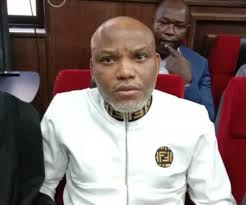Pope Francis Passes Away: A New Chapter for the Catholic Church
On April 21, 2025, the Catholic world mourned as Pope Francis, the beloved leader of the Catholic Church for over a decade, passed away at the age of 88 due to a stroke and cardiac arrest in his residence within Vatican City’s Domus Sanctae Marthae. His death marked the end of a significant era defined by humility, advocacy for social justice, and reformist zeal.
His Legacy
Throughout his 12-year papacy, Pope Francis was renowned for challenging traditional Church doctrines with compassion and emphasis on social issues. From championing the rights of migrants and the marginalised to initiating reforms in Church governance, his leadership reshaped perceptions of the papacy and inspired millions worldwide.
Funeral and Burial
A solemn funeral Mass was held on April 26, 2025, in St. Peter’s Square, led by Cardinal Giovanni Battista Re, attended by dignitaries, clergy, and faithful from across the globe. Following the ceremony, Pope Francis was laid to rest at the Basilica of Santa Maria Maggiore in Rome, near the Salus Populi Romani icon—his personal request—marking the first time since 1903 that a pope was interred outside Vatican City.
The Conclave: Electing a New Pope
The College of Cardinals is convening on May 7, 2025, in the Sistine Chapel, where 133 cardinal electors under the age of 80 will begin the sacred process to select Pope Francis’s successor. The election emphasises prayer, reflection, and consensus, requiring a two-thirds majority for decision.
Leading Candidates: ‘Papabili’ and Their Profiles
While no official candidates have been announced, the cardinals considered frontrunners—‘papabili’—come from diverse backgrounds and regions:
- Europe:
- Cardinal Pietro Parolin (Italy), the Vatican’s Secretary of State, is seen as the leading candidate, thanks to his diplomatic experience and deep Vatican knowledge. His role in the 2018 Vatican-China agreement highlights his influence.
- Cardinal Pierbattista Pizzaballa (Italy), Latin Patriarch of Jerusalem, is known for promoting peace amidst Middle Eastern conflicts.
- Cardinal Matteo Zuppi (Italy), Archbishop of Bologna and a veteran diplomat, advocates for inclusion and social justice.
- Cardinal Claudio Gugerotti (Italy), expert on Eastern Churches, with extensive diplomatic service.
- Asia:
- Cardinal Luis Antonio Tagle (Philippines), the charismatic and moderate archbishop, advocates for the poor and marginalized, considered Asia’s top contender.
- Cardinal Charles Maung Bo (Myanmar), a vocal supporter of reconciliation and human rights, the country’s only cardinal.
- Africa:
- Cardinal Peter Turkson (Ghana), a seasoned diplomat and advocate for social justice, is long regarded as a potential first African pope.
- Cardinal Robert Sarah (Guinea), a conservative figure known for traditionalist views, though his age and recent health may affect his candidacy.
- Cardinal Fridolin Ambongo (DR Congo), vocal on peace and moral issues, is seen as a leader from Africa’s growing influence.
- Americas:
- Cardinal Timothy Dolan (USA), a prominent conservative voice with strong pastoral skills.
- Cardinal Michael Prevost (USA), experienced in Church administration and Latin American affairs.
A Changing Church
As the conclave begins, speculation abounds about the Church’s future direction—whether it will continue the reformist path of Pope Francis or adopt a more conservative stance. The next pope’s leadership could significantly influence global Catholic policies, social issues, and interfaith relations.
The death of Pope Francis signals a moment of intense reflection and transition in Catholic history. As the cardinals gather behind closed doors, the worldwide Catholic community watches with hope and anticipation for the next leader who will guide the Church through the complexities of the modern world.




